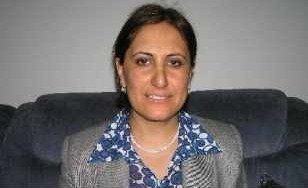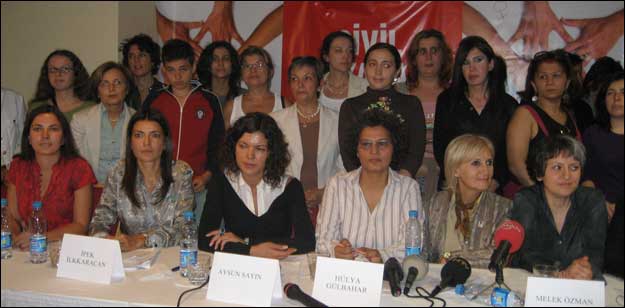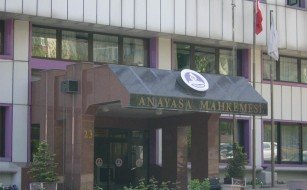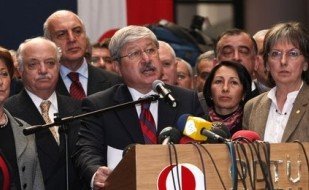The collective agreement also provides one day off for all workers on 1 May, international workers' solidarity day, and another day off for all female workers on 8 March, international day of women. Both days are not yet recognized as official holidays.
The agreement reflects increased gender awareness among Turkey's labor movement and women. District mayor Gulcihan Simsek is one of Turkey's 19 women mayors out of total 3 thousand 234. Albeit poorly represented in local and national politics, Turkey's women are distinguished with increased zeal for extending their rights and degree of participation. A similar contract was signed by the Viransehir Municipality in Sanliurfa at the beginning of the year.
Local authorities should take steps
Mayor Gülcihan Simsek told bianet that it was necessary to start at the local level to prevent violence towards women, and that municipalities should take responsibility:
"This is a problem all over the world. There are laws in Turkey, but they are not applied. A woman goes to the police and meets with men, she goes to the prosecution and is confronted by men. That is why everyone must work towards developing the consciousness that women have rights."
The collective contract, which made 34 municipal workers permanent workers, includes the following stipulations:
- The wages of workers were increased by 10 percent, and their social rights payments by 50 percent.
- 1 May International Labour Day and 8 March International Women's Day are holdiays. In addition, workers will be given an 80 YTL increase.
- Workers who are violent at home will be sent to the discipline board. Depending on the decision of the board, the worker's wage may be given to the spouse; should the violence continue, the worker will be dismissed.
- Workers who take a second wife will be dismissed.
Commitment to women's issues
Simsek of the Democratic Society Party (DTP) said that there were plans for these kinds of practices to be applied in all the municipalities where the party is in power.
In addition, Simsek said that there were other projects in her municipality aimed at solving women's problems. The municipality has a population of 14,500.
Simsek said: "Violence is not only being beaten. There is also economical and psychological violence, and this is most severely experienced by women."
"50 percent of our voters are women, and we have to find solutions to their problems." She added that there was a lot of rural migration to the area, which meant that many of the women, who mostly spoke Kurdish, could not avail themselves of basic services.
Up to now, a cooperative for women's employment has been founded. With the help of the Basel Solidarity Association, a Women's Solidarity and Washing House will be opened in the next days. There are also projects for women's education and to offer women psychological support.
"What we can do is to bring the problems out into the open, emphasise them, and make sure that women make use of their rights. That is the only way we can solve problems." (EÜ/AG)











